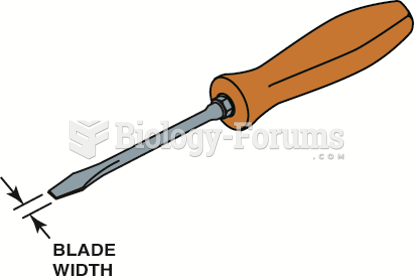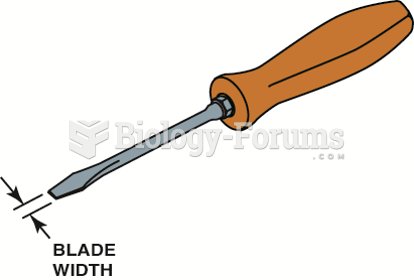|
|
|
Approximately 70% of expectant mothers report experiencing some symptoms of morning sickness during the first trimester of pregnancy.
There are more nerve cells in one human brain than there are stars in the Milky Way.
Symptoms of kidney problems include a loss of appetite, back pain (which may be sudden and intense), chills, abdominal pain, fluid retention, nausea, the urge to urinate, vomiting, and fever.
In the ancient and medieval periods, dysentery killed about ? of all babies before they reach 12 months of age. The disease was transferred through contaminated drinking water, because there was no way to adequately dispose of sewage, which contaminated the water.
Children with strabismus (crossed eyes) can be treated. They are not able to outgrow this condition on their own, but with help, it can be more easily corrected at a younger age. It is important for infants to have eye examinations as early as possible in their development and then another at age 2 years.
 It is in the family that we first learn how to do gender, how to match our ideas, attitudes, and ...
It is in the family that we first learn how to do gender, how to match our ideas, attitudes, and ...
 Letterhead stationery sizes are varied to suit the needs of the sender. Envelopes are sized to match ...
Letterhead stationery sizes are varied to suit the needs of the sender. Envelopes are sized to match ...
 A flat-tip (straight-blade) screwdriver. The width of the blade should match the width of the slot ...
A flat-tip (straight-blade) screwdriver. The width of the blade should match the width of the slot ...




